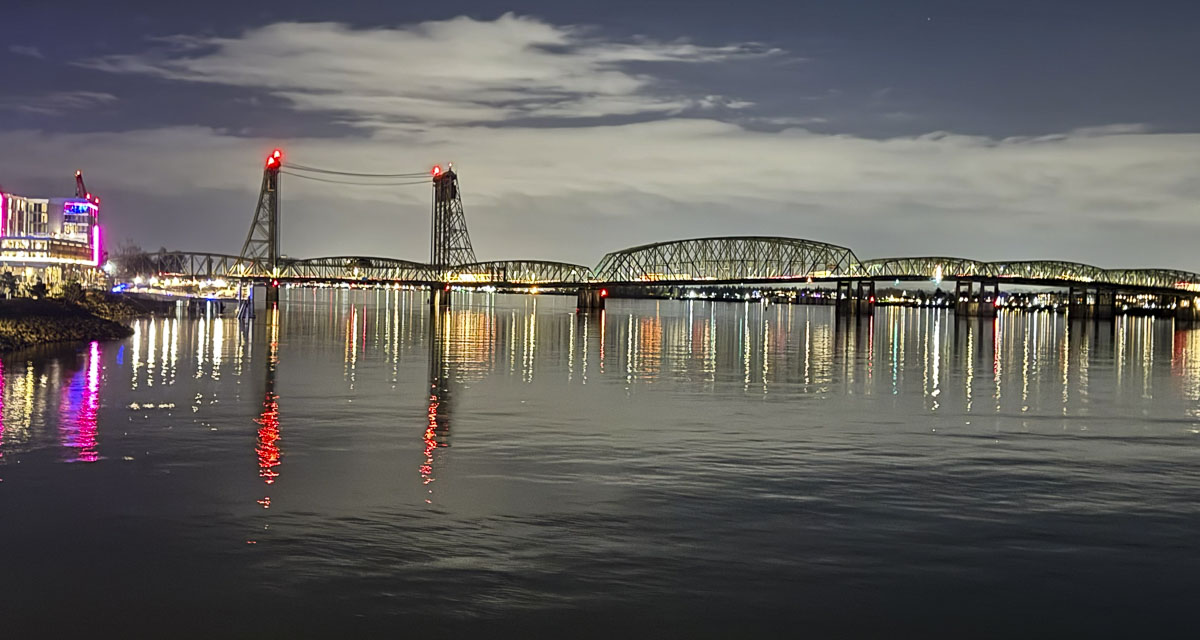
Vancouver Mayor Anne McEnerny-Ogle spoke in favor of the bill, saying that ‘we’re not special’ in regard to bond debt financing for projects like the bridge replacement
TJ Martinell
The Center Square Washington
A Washington bill would authorize the state to issue up to $1.6 billion in bonds to expedite the construction of a new bistate bridge to replace the existing one across the Columbia River between Vancouver, Wash., and Portland, Ore., which would be paid back with toll revenue.
However, some lawmakers raised concerns at House Bill 1958’s public hearing in the House Transportation Committee as to whether or not the bill would leave Washington on the hook for paying bonds on a multi-state project involving Oregon.
Sponsored by Transportation Chair Rep. Jake Fey, D-Tacoma, HB 1958 authorizes the $1.6 billion in bonds to be used to pay for various aspects of the new bistate bridge, including its design and construction. All funds would be deposited into the Interstate Bridge Replacement Account, and to be paid for with tolling authorized by the state Legislature in 2023.
For the bill’s supporters, the upfront money obtained through bonding means the existing bridge, which turned 108 years old earlier this month, can be replaced faster.
Fey told colleagues that the bill ensures “we have a safe, reliable bridge,” adding that “this project has a long history to it, and it is more than past the time” to have it built.
However, some committee members such as Rep. Ed Orcutt, R-Kamala, expressed reservations about how Washington would assume full financial responsibility for paying off the bonds. Rep. John Ley, R-Vancouver made the suggestion that the bill be implement on the contingency that Oregon accepted 50% of the financial risk.
According to Fey, there currently no is legal agreement between Washington and Oregon regarding fiscal responsibility, though future agreements are in the works as the project progresses.
Various other government officials testified in favor of the bill including Washington State Department of Transportation Principal Financial Officer Doug Vaughn, who told the committee that the bonding is a “necessary step forward for this important project,” adding that the bonding authorization represents a ceiling rather than the actual amount of bond debt that will be issued based on legislative appropriations.
Heather Kurtenbach with the Washington State Building and Construction Trades Council told the committee that bonding is more preferential than “pay as you go,” noting that the current bridge “imposes a safety risk to the traveling public,” in part because of its vulnerability to a seismic event.
Vancouver Mayor Anne McEnerny-Ogle also spoke in favor of the bill, saying that “we’re not special” in regard to bond debt financing for projects like the bridge replacement.
HB 1958 is currently not scheduled for any further committee action. Its companion legislation, Senate Bill 5734, was scheduled for a public hearing on Tuesday.
This report was first published by The Center Square Washington.
Also read:
- Busy pavement season ahead on Vancouver streetsThe city of Vancouver is set to repave and preserve 76 lane miles across 20 neighborhoods in summer 2025, with ADA upgrades and community notices throughout.
- State representative: Expect sticker shock when Interstate Bridge project officials reveal price, tolling plansAt a town hall in Battle Ground, Rep. John Ley warned of major cost increases and tolling burdens tied to the Interstate Bridge replacement project.
- Opinion: Washington state lawmakers increase the cost of driving – againBob Pishue of Mountain States Policy Center argues that new vehicle and fuel taxes in Washington will raise driving costs while diverting funds away from roads.
- Overnight full closure of I-5 near Woodland for bridge inspection, May 6WSDOT will fully close southbound I-5 near Woodland overnight on Tuesday, May 6 for a bridge inspection using a chain drag test.
- Opinion: Do we still need TriMet?John A. Charles Jr. of the Cascade Policy Institute argues that TriMet should halt expansion plans and prepare for major service reductions in response to falling ridership and rising costs.









